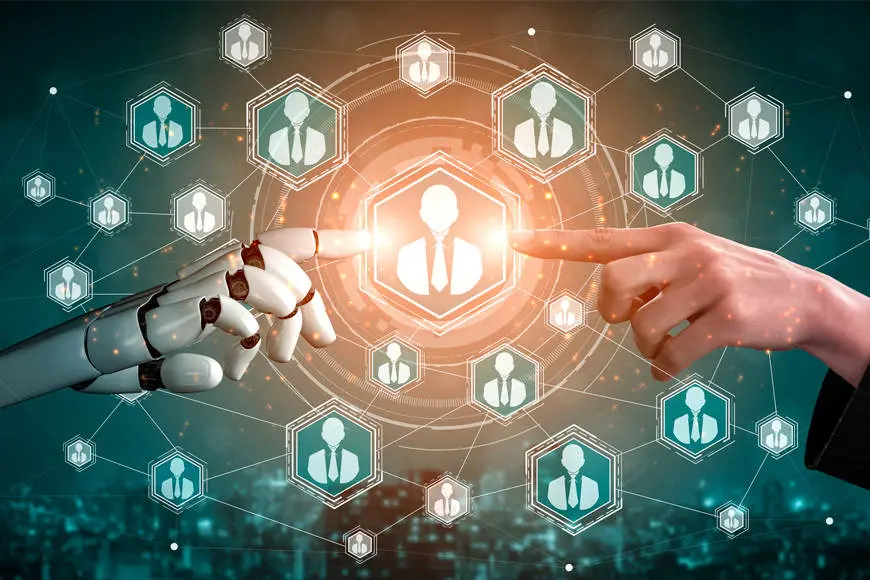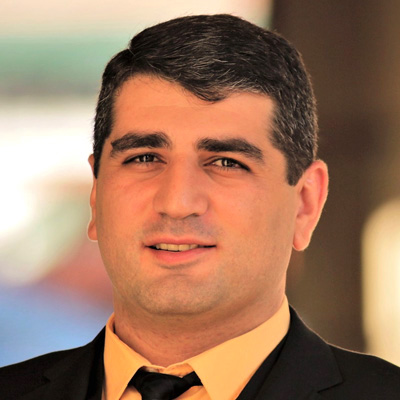How Is Artificial Intelligence Changing the Recruiting Process?
As Shane Legg, co-founder of DeepMind Technologies, said, intelligence is the ability of an agent to set goals and solve different problems in a changing environment. If the agent is a human, the intelligence is natural, and if the agent is a machine, the intelligence is artificial. What about artificial intelligence in recruitment?
AI in recruitment means applying artificial intelligence to the recruitment function. AI or machine intelligence can help recruiters design or automate workflow, such as repetitive high-volume tasks. Thus, AI can make the hiring process easier, faster, unbiased, and lower cost. Let’s reveal “how is artificial intelligence changing the recruiting process?” and how companies can benefit from artificial intelligence in the hiring process.
Artificial intelligence and Recruitment
Artificial intelligence (AI) is the technology that emulates human behavior. AI in talent acquisition can help recruiters analyze large amounts of candidate-related data, such as applications, resumes, video interviews, and cover letters.

Recruiters source, screen, and hire the most suitable applicants with AI-assisted tools. Specifically, AI-based tools enable recruiters to assess the candidate’s education level, job experience, skills, and cover letters. Additionally, AI helps recruiters catch inconsistencies, inaccuracies, or false information in resumes and determine whether an applicant is the best fit for the job.
Intelligent screening through recruitment AI uses an algorithm to target specific keywords, such as “time management,” “team building,” “creative,” and “problem-solving” in a resume. This way, recruiters save time when identifying the best talent.
Moreover, AI software can analyze applicants’ online presence, such as social media presence and comments to online articles, to provide a broader image of their history and abilities. As a result, recruiters determine whether the candidate’s personality can be the best fit for their culture.
With advanced predictive analytics software (PA), recruiters can conduct a detailed analysis and discover the most suitable candidates for the job. PA software uses historical data to predict hiring activities and candidates. As a result, this software helps HR managers save many hours when shortlisting and pre-screening candidates.
The global AI market was valued at $327.5 billion, according to Statista’s “ Artificial Intelligence (AI) Worldwide ” report published in 2021. The industry is forecast to grow with rapid advances. One of these advances is AI workforce augmentation, meaning more of today’s jobs will be outsourced to AI. This is especially true of more repetitive work.
Artificial Intelligence in Recruitment: How AI Can Help Recruiting
There has been dramatic progress with advanced digital technologies such as AI. The global artificial intelligence market size is expected to make up $641.30 billion by 2028, and the role of artificial intelligence in talent acquisition is growing each year.
HR managers understand that “quality of hire,” the value new hires bring to a company, serves as a key performance indicator (KPI) for the sector. Therefore, they work on making the recruitment process more effective to be able to hire productive candidates.
Thus, the number of companies integrating AI solutions into their recruitment processes is growing as recruiters increasingly turn to applicant-tracking software (ATS). These tools use AI to organize and filter information on potential hires. Specifically, these systems collect and store resumes in a database and search for key skills and titles.
Let’s see how AI in talent acquisition helps:
- Makes Recruiters More Proactive in Talent Acquisition
AI is increasingly transforming recruiters’ roles via augmented intelligence. The latter represents a human-centered partnership model. In this model, people and AI work together to boost cognitive performance, such as learning, decision-making, and new experiences. It’s anticipated that the global augmented intelligence market will grow by $45.65 billion by 2026.
As a result, recruiters are becoming more proactive in hiring employees. AI helps recruiters analyze large amounts of data and uses it to measure KPIs, such as the quality of hire. This way, recruiters figure out whether a candidate is the best fit for the job and their culture.
- Automates High-Volume Tasks
AI helps recruiters automate high-volume tasks and improves the quality of hire by providing standardized job matching. The latter is the process of matching the right applicant to the job based on objective criteria. As a result, hiring managers can have more time to engage with employees and solve more complex strategic issues.
- Reduces Bias in the Hiring Process
Automated hiring processes can reduce bias by choosing the most suitable candidates for the job. Specifically, AI processes information at a massive scale and analyzes large sets of applicant-related data to make unbiased and fair decisions. This is especially true of the following cases:
– Similarity Attraction Effect: Tendency to seek out people like you.
– Confirmation Bias: Favoring information that confirms your beliefs.
– Halo Effect: Assuming that candidates who are good at activity A, will be good at activity B.
– Tests Candidates’ Skills and Emotional Intelligence
By testing candidates’ skills and emotional intelligence, recruiters find individuals with skills that best fit the role. Additionally, AI algorithms and testing processes predict which candidates are more suitable for specific projects.
For personality or emotional intelligence testing, AI utilizes short questions or games to evaluate candidates’ cognitive and emotional traits to determine how they’d deal with different situations. Questions may include “Do you like helping people out?” or “How do you act if you’ve been unjustly blamed for something you didn’t do?” Through these questions, recruiters can predict whether the candidate can be the best cultural fit within a company or not.
- Improves Communication
Implementing AI in hiring can help improve communication with applicants. Recruiters can use AI to automate the process of sending emails to candidates. Also, they can set reminders for upcoming interviews. As a result, recruiters can deliver a superior experience to each applicant. Good communication with candidates improves the candidate experience and enhances the employer brand.
- Reduces Time and Cost
By automating the repetitive tasks associated with resume assessment and candidate shortlisting, AI helps reduce time and costs. For example, AI helps recruiters avoid going through all the resumes received to find the keywords they target.
AI Limitations and Ethics
Progress in technology can serve both good and evil, depending on who uses these advances for what purposes.
NVIDIA, a famous multinational technology company, developed Megatron – a powerful transformer based on Google’s earlier work. During a recent technology debate at Oxford Union, Megatron said artificial intelligence would never be ethical.
Megatron is an AI engine that is trained to consume online content. Specifically, it has access to Wikipedia, 63 million English news articles from 2016 to 2019, and 38 GB worth of Reddit chats.
According to Megatron, AI is a tool. Like any other tool, it can be applied for either good or bad. Also, as Megatron added, artificial intelligence isn’t smart enough to make itself moral or ethical.
On the other hand, AI’s ability to independently perform complex, divergent thinking isn’t unlimited, and humans are smarter than AI. After all, humans created AI.
In the hiring process, AI can screen qualified resumes. However, resumes don’t represent everything and don’t reflect candidates’ deeper qualities. Recruiters can better understand candidates through communication and in-person meetings by taking various emotional and situational behaviors into account.
Josh Constine, a venture partner at SignalFire, says it’s important to keep humans in the loop. While AI helps accelerate workflow, human evaluation helps streamline the process. As Constine further notes, companies should use humans to see beyond credentials and choose candidates who fit their values.
Final Thoughts
AI is revolutionizing the way companies look for talent. Specifically, artificial intelligence in recruitment comes with benefits and limitations that shouldn’t be overlooked.
The benefits include the faster discovery of a relevant talent and potential hires alongside better engagement with them. Also, AI makes the hiring process more straightforward and cost-effective. However, recruiters should never ignore real human connections and personalized strategies to find the best answer to “how is artificial intelligence changing the recruiting process?” After all, humans are the creators of AI.



